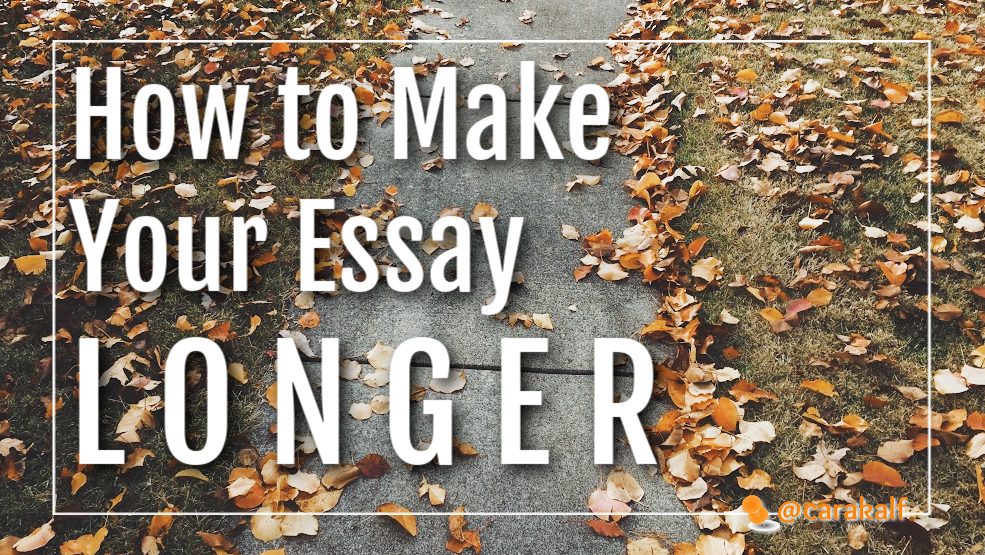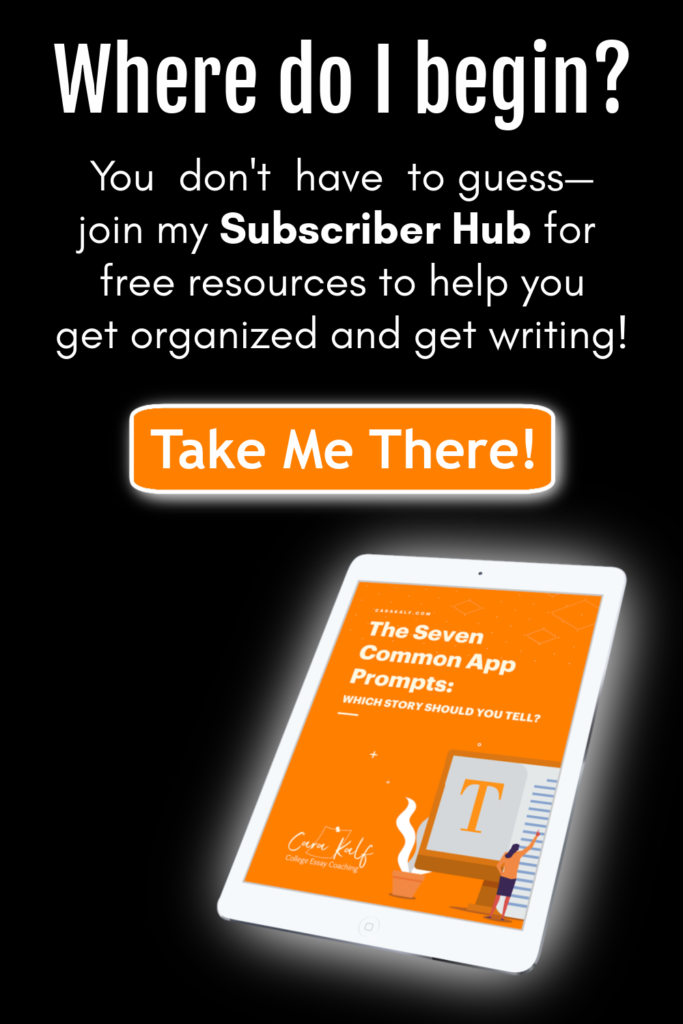How To Make Your Essay Longer
When you speak with a relative you rarely see, it’s easy to feel like you have nothing to say to them. On the other hand, you can be so long at lunch talking to your best friend that you’re late to your next class—when you just saw them third period!
In the same way, when you’re writing a college essay about some major event in your life, you must have plenty to say. Yet when you sit down to write it, it feels like there’s nothing.
If you’re writing about something that feels too big to be tackled, you can get into summary mode. You give the basic details of the event, and then feel like you don’t have anything more to say. But if you start looking more deeply, you’re going to find yourself so far over the word limit that you’re going to return, begging me to help you make it shorter!
How important is it to use all of the space provided? With the Common App essay, I would say, very important. The 650-word limit is actually pretty short for a story of any substance. You should be filling at least 600. Most of my students write exactly 650. (Those who don’t are almost always in the 644-and-up range.)
How do they do it? They go deep on moments that matter. They incorporate relevant details from across their lives—without trying to make the piece an overview. They layer ideas and incorporate both an “inside” story of personal growth and an “outside” story with action and failure or triumph.
When you’ve found the story that you feel pulled to tell, there are several steps you can take to make your college essay longer:
- Stop being so critical of every word you write down. The more you let yourself just write without deciding that every idea is too stupid to write about, the more you will get on the page. Add all of the details, even the ones you think are irrelevant. That doesn’t mean they all matter —it just means that you have to be more open in the initial brainstorming process if you want to reach 650.
- Expect to go over 650. The secret is officially out. Write long. If you write 650 words, and then edit out anything less than your best … you won’t end with 650 words. If you want to end at 650, you’re going to have to overshoot your goal in the rough draft phase.
- Include the necessary backstory. Just because you know that baseball is important to you because you played with your dad since you were 3, and he was the shortstop on his high-school baseball team, too—doesn’t mean your reader knows that. Why should I care about your story? What information do I need to understand how you grow in this event? You’re probably forgetting some of it. Speaking from the experience of reading numerous first drafts—you might even be forgetting all of it.
- Bring me to an important moment. Is there a moment within your story that deserves more detail and emphasis? How can a reader appreciate how important that moment was? It won’t help if you tell them, “This moment was really important to me.” You need to show them what it was like to be there —maybe they need to see what you saw from the mountain’s top, or hear what your music teacher said just after the big performance. Some stories need to be experienced by the reader for themselves.
- Don’t stop too soon. If you haven’t continued your story all the way until today, you might be missing great opportunities to add depth to the piece. Your story is ongoing . In what ways does the story you are telling connect with your life now?
If you’ve addressed all five of those points, you should be pleased with how long your piece is getting.
Or perhaps you’re alarmed. Don’t say I didn’t warn you.
How NOT to Make Your Essay Longer
- Don’t use more words than you need to express your idea.
- Don’t use more examples than you need to make your point.
- Don’t use cliched phrases to make sentences longer.
- Don’t add repetitive transition phrases. You need words like “also” or “in addition” a lot less than you think (and rarely in a personal essay.)
- Don’t add extra adjectives and adverbs. They don’t make you sound smarter or more interesting, they make you sound like you’re padding.
(Photo by Ellen Auer on Unsplash)


